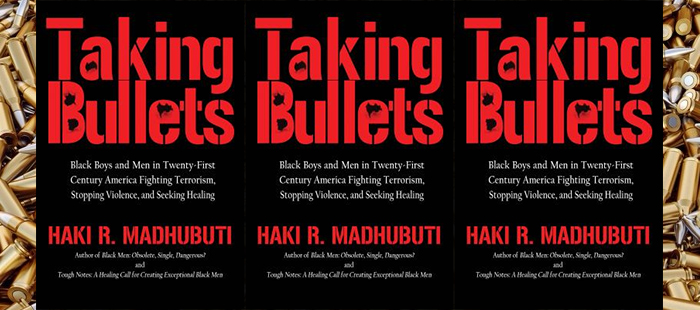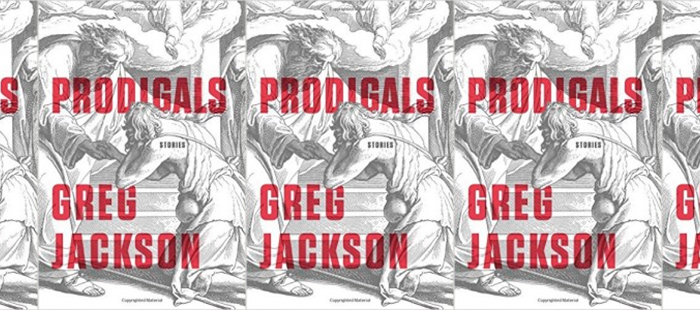Review: TAKING BULLETS: TERRORISM AND BLACK LIFE IN TWENTY-FIRST CENTURY AMERICA by Haki R. Madhubuti

Taking Bullets: Terrorism and Black Life in Twenty-First Century America
Haki R. Madhubuti
Third World Press, April 2016
194 pp; $17.95
Reviewed by Dr. Lasana Kazembe
The waning months of President Obama’s presidency coupled with the populist ascendancy of Donald Trump has seemingly expedited feelings of fear, loathing, and endless uncertainty among many. To some, Obama’s ascendancy was supposed to usher in a post-racial democracy that would rescue, resuscitate, and render the American dream (or pieces of it, at least) reachable to the average American citizen. Unfortunately, Trump’s nativist rhetoric and crypto-fascism synched with the durability of racism, generational poverty, and American empire-building has imposed newer and more serious life-challenges into the lives of Black Americans and poor and working class people from all walks of life.
The latest book by poet, professor, and Black Arts Movement architect Haki R. Madhubuti is an urgent treatise which attempts to demystify a grim present and uncertain American future. In Taking Bullets: Terrorism and Black Life in Twenty-First Century America, Madhubuti turns his razor-like poetic focus on the real-life challenges imposed by white supremacy, plutocracy, and oligarchy. With bold, insistent prose, the author simultaneously challenges readers to widen and sharpen their political gaze in the midst of the struggle to comprehend complex, shifting tensions, both national and global.
As Madhubuti writes in the opening pages, the idea for Taking Bullets evolved in the wake of the police killing of 12 year-old Tamir Rice in Cleveland, Ohio. Rice’s tragic death (as well as the litany of extrajudicial killings of Black people at the hands of police) inspired the subtext of Madhubti’s critique of what he describes as “acts of state terrorism” against the Black community.
Madhubuti broadens his synthesis into a sociocultural and sociopolitical critique of U.S. domestic and global capitalism, the police and prison industrial complexes, and the social violence wrought by unchecked corporate power, greed, and militarism on the lives of poor and working class individuals. As Madhubuti observes, the precarity of Black lives has ushered in more sinister and unforeseen challenges that threaten the very existence of future generations:
My position, as of now, is that the Black presence in the United States remains precarious, highly questionable as an essential labor force… [and Blacks remain] …largely unwanted or needed at any level of national importance other than cultural enlightenment, entertainment, sports, military service, and tap dancing.
In prescriptive fashion, Taking Bullets offers deep insights and practical solutions to issues including sexism, fatherlessness, economic underdevelopment, and poverty. Full transcripts of The Bill of Rights, U.S. Constitution, and the United Nations Universal Declaration of Human Rights are included in the book’s Appendix.
Taking Bullets might be construed as a follow-up text to Madhubuti’s groundbreaking book Black Men: Obsolete, Single, Dangerous? (Third World Press, 1990). That book, which sold over one million copies, helped Madhubuti expand his position as one of America’s foremost cultural critics. As with his earlier work, Madhubuti frames the new text as an impassioned call for us to critically confront existing challenges to transform and shape a healthier, safer future. In the book’s conclusion, Madhubuti beckons us all toward the cultivation of “four unconditionals”: love, courage, search for knowledge, and human will.
Lasana Kazembe, Ph.D. is a poet, professor, and educational consultant based in Chicago. He teaches in the Department of Education at DePaul University.


